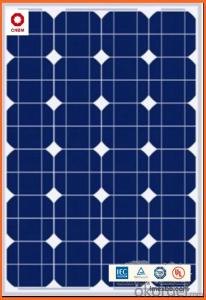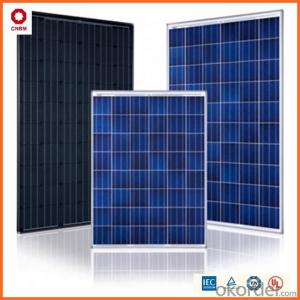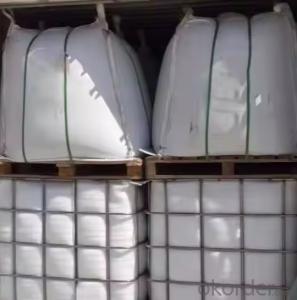!!! Hot On Sale!!! Stock Small Solar Panel 45w with Good Quality
- Loading Port:
- China main port
- Payment Terms:
- TT OR LC
- Min Order Qty:
- 1 watt
- Supply Capability:
- 10000000 watt/month
OKorder Service Pledge
OKorder Financial Service
You Might Also Like
Product Description:
Hot Sale !!! Quality and Safety of Small Poly Solar Panel 35~85w
1. Rigorous quality control meets the highest international standards.
2. High-transmissivity low-iron tempered glass, strong aluminium frame.
3. Using UV-resistant silicon.
4. IS09001/14001/CE/TUV/UL
Warranties of Small Poly Solar Panel 35~85w
1. 10 years limited product warranty
2. 15 years at 90% of the minimal rated power output
3. 25 years at 80% of the minimal rated power output
Technical date of 45w-85w Poly Solar Panel
ITEM NO.: | Mono 125*125 cell ,36pcs . Power range from 80Wp-100Wp | ||||||||
Maximum Power(W) | 80 | 85 | 90 | 95 | 100 | ||||
Optimum Power Voltage(Vmp) | 17.81 | 17.89 | 17.94 | 17.99 | 18.06 | ||||
Optimum Operatige Current(Imp) | 4.78 | 4.91 | 5.12 | 5.35 | 5.59 | ||||
Open Circuit Voltage(Voc) | 21.98 | 22.05 | 22.14 | 22.28 | 22.45 | ||||
Short Circuit Current(Isc) | 4.95 | 5.15 | 5.36 | 5.65 | 5.84 | ||||
Solar Cell: | 125*125 Mono | ||||||||
Number of Cell(pcs) | 4*9 | ||||||||
Brand Name of Solar Cells | JA Cell, Bluesun Cell | ||||||||
Size of Module(mm) | 1580*808*35 | ||||||||
Caple & Connector Type | Pass the TUV Certificate | ||||||||
Frame(Material Corners,etc.) | Aluminium-alloy | ||||||||
Backing (Brand Type) | TPT | ||||||||
Cell Efficiency for 100W(%) | 15.8% | ||||||||
Weight Per Piece(KG) | 12.0KG | ||||||||
FF (%) | 70-76% | ||||||||
Junction Box Type | Pass the TUV Certificate | ||||||||
Tolerance Wattage(e.g.+/-5%) | ±3%, or 0-3% | ||||||||
Front Glass Thikness(mm) | 3.2 | ||||||||
Temperature Coefficients of Isc(%) | +0.04 | ||||||||
Temperature Coefficients of Voc(%) | -0.38 | ||||||||
Temperature Coefficients of Pm(%) | -0.47 | ||||||||
Temperature Coefficients of Im(%) | +0.04 | ||||||||
Temperature Coefficients of Vm(%) | -0.38 | ||||||||
Temperature Range | -40°C to +85°C | ||||||||
Surface Maximum Load Capacity | 2400Pa | ||||||||
Allowable Hail Load | 23m/s ,7.53g | ||||||||
Bypass Diode Rating(A) | 12 | ||||||||
Warranty | 90% of 10 years,80% of 25 years. | ||||||||
Standard Test Conditions | AM1.5 1000W/ 25 +/-2°C | ||||||||
Packing | carton or pallet | ||||||||
1*20' | 25 Pallets / 450pcs | ||||||||
1*40'STD | 25 Pallets / 100pcs | ||||||||
Features of our products:
• High conversion efficiency mono/poly-crystalline amorphous silicon solar cells
• Modules incorporate high performance bypass diodes to minimize the power drop caused by shading
• High transmittance, low-iron tempered glass
• High performance EVA encapsulant to prevent destroying and water.
• AI frame: without screw, corner connection. 8 holes on the frame can be installed easily
• Good performance of preventing from atrocious weather such as wind and hails
• Certifications: CE IEC TUV VDE UL, Class I
• 10 years 90% power output warranty

Shipping of Small Poly Solar Panel 35~85w
By Sea | Delivery from Shanghai or Ningbo seaport |
By Air | Departure from Shanghai Pudong Airport |
By Express | Post by DHL, EMS, UPS, TNT. |
- Q:Can solar energy systems be used in areas with limited access to transportation?
- Yes, solar energy systems can be used in areas with limited access to transportation. Solar energy systems are highly versatile and can be installed in remote locations where transportation infrastructure may be limited or non-existent. These systems can be designed to function independently of the grid, providing a reliable source of electricity for communities and individuals in remote areas. Additionally, advancements in solar technology have led to the development of smaller and more portable solar systems, making it easier to transport and install them in areas with limited access to transportation.
- Q:How does the angle of the sun affect the performance of a solar energy system?
- The angle of the sun plays a crucial role in determining the performance of a solar energy system. Solar panels work by converting sunlight into electricity through the photovoltaic effect. The angle at which the sun's rays hit the solar panels directly impacts the amount of energy they can generate. When the sun is directly overhead, its rays are perpendicular to the surface of the solar panels, maximizing the energy output. This is known as the solar noon or the peak sun hours. As the sun's angle decreases, such as during morning or evening hours, the sunlight has to travel through a larger portion of the Earth's atmosphere, which reduces its intensity. This results in a decrease in energy production. Moreover, the angle of the sun also changes with the seasons. During the summer months, the sun is higher in the sky, allowing for more direct sunlight and increased energy production. In contrast, during winter, the sun is lower, leading to reduced solar energy output. To optimize the performance of a solar energy system, it is crucial to consider the angle at which the solar panels are installed. The tilt angle of the panels can be adjusted based on the latitude of the location to maximize the exposure to sunlight throughout the year. Additionally, tracking systems can be employed to follow the movement of the sun and adjust the angle accordingly, further enhancing energy production. In conclusion, the angle of the sun directly affects the performance of a solar energy system as it determines the intensity of sunlight reaching the solar panels. By ensuring the optimal angle and orientation of the panels, solar energy systems can generate maximum energy output and improve overall efficiency.
- Q:Can solar energy systems be installed on all types of roofs?
- Yes, solar energy systems can be installed on most types of roofs, including flat roofs, sloped roofs, and even curved roofs. However, the suitability of installation may vary depending on factors such as the roof's orientation, angle, shading, and structural integrity. It's important to consult with a professional solar installer to assess the compatibility of a specific roof for solar panel installation.
- Q:Can solar energy systems be financed?
- Yes, solar energy systems can be financed through various options such as loans, leases, power purchase agreements (PPAs), and government incentives. These financial options make it easier for homeowners, businesses, and organizations to invest in solar energy and benefit from long-term energy savings.
- Q:How does the quality of solar panels vary based on the manufacturer?
- Solar panel quality can greatly vary depending on the manufacturer. Different manufacturers utilize various technologies, materials, and manufacturing processes, all of which directly affect the panels' performance, reliability, and lifespan. To begin with, efficiency can differ based on the manufacturer. Efficiency refers to how well the panels can convert sunlight into electricity. Some manufacturers employ advanced and efficient solar cell technologies like monocrystalline or thin-film, resulting in higher conversion rates compared to panels using polycrystalline cells. Moreover, the manufacturer plays a role in the durability and reliability of solar panels. High-quality manufacturers subject their panels to rigorous testing and use superior materials to ensure they can endure harsh weather conditions, temperature fluctuations, and debris impact. These manufacturers may also offer longer warranties, indicating their confidence in the durability of their products. Additionally, the lifespan of solar panels is influenced by the manufacturer's quality. Reputable manufacturers design their panels to have a longer operational life, typically lasting 25 to 30 years. They may incorporate anti-degradation technologies that prevent power output decline over time. Furthermore, the manufacturing processes employed by different manufacturers can impact panel quality. Manufacturers with stringent quality control measures and standardized production practices tend to produce more reliable and consistent panels. They may also hold certifications and adhere to industry standards, ensuring their products meet or surpass set requirements. Lastly, customer service and support can also differ depending on the manufacturer. Reliable manufacturers often provide excellent customer support, including after-sales services, technical assistance, and warranty coverage. This level of support significantly influences the overall experience and satisfaction of solar panel owners. In conclusion, solar panel quality can greatly vary depending on the manufacturer. It is crucial for consumers to thoroughly research and select panels from reputable manufacturers offering higher efficiency, durability, lifespan, and customer support. Investing in high-quality solar panels guarantees optimal performance and long-term savings on electricity costs.
- Q:Can solar energy systems be used for powering off-grid military operations?
- Yes, solar energy systems can be used for powering off-grid military operations. Solar panels can be installed to generate electricity, which can then be used to power various equipment and facilities such as communication systems, surveillance equipment, lighting, and even temporary field hospitals. Solar energy systems offer a reliable and sustainable alternative to traditional fossil fuel generators, reducing logistical challenges and providing a more environmentally friendly power source in remote or inaccessible areas.
- Q:Can solar energy systems be used for powering electric vehicle ride-sharing services?
- Certainly! Electric vehicle ride-sharing services can utilize solar energy systems to power their operations. These systems, such as solar panels, have the capacity to generate electricity from sunlight and convert it into usable energy. This energy can be stored in batteries or directly employed to charge electric vehicles. By embracing solar energy, ride-sharing services can decrease their reliance on fossil fuels and diminish their carbon footprint. Various locations across the globe are already implementing solar-powered electric vehicle charging stations that provide clean and renewable energy for charging electric vehicles. These charging stations can be incorporated into ride-sharing service networks, enabling electric vehicles to recharge using solar energy during idle periods or while awaiting passengers. Solar energy systems present several advantages for powering electric vehicle ride-sharing services. Firstly, solar energy is abundant and free, making it an economical and sustainable choice in the long term. Moreover, solar panels have a prolonged lifespan and require minimal maintenance, thereby reducing operational expenses for ride-sharing companies. Additionally, by embracing solar energy, ride-sharing services can encourage the adoption of renewable energy and contribute to a more environmentally friendly and sustainable transportation sector. However, it is important to consider the limitations of solar energy systems. Solar panels only generate electricity during daylight hours, and their efficiency can be influenced by factors such as weather conditions and the angle of sunlight. Consequently, ride-sharing companies that solely rely on solar energy may need to supplement their power supply with grid electricity or other renewable energy sources to ensure uninterrupted service. In conclusion, solar energy systems are indeed a viable option for powering electric vehicle ride-sharing services. By harnessing the power of the sun, ride-sharing companies can reduce their environmental impact, lower operational costs, and contribute to the transition towards a clean and sustainable transportation system.
- Q:Can solar energy systems be used in areas with limited grid infrastructure?
- Solar energy systems are indeed suitable for use in areas that have limited grid infrastructure. In fact, one of the key benefits of solar energy is its ability to supply electricity in remote and off-grid locations. By converting sunlight into energy, solar panels generate electricity without relying on a connection to the traditional power grid. This makes solar energy systems an ideal choice for remote areas like rural communities or developing regions, where it may not be financially or technically feasible to extend the grid infrastructure. Through the installation of solar panels and the use of energy storage systems like batteries, these areas can generate and store their own electricity, even when sunlight is scarce or during nighttime. This not only grants access to reliable and clean energy, but also fosters energy independence and resilience in regions with limited grid infrastructure. Moreover, solar energy systems can be easily adjusted in scale to meet the energy demands of the community, making them a versatile and sustainable solution for powering areas with limited grid infrastructure.
- Q:Can solar energy systems be used for powering disaster relief efforts?
- Yes, solar energy systems can be used for powering disaster relief efforts. Solar panels can provide a reliable and sustainable source of electricity, especially in areas where the traditional power grid may be disrupted or inaccessible. These systems can power emergency communication devices, medical equipment, lighting, and other essential needs during disaster situations, offering a clean and renewable energy solution.
- Q:Can solar energy systems be used in powering water pumps?
- Solar energy systems have the capability to power water pumps. In fact, there is a growing trend and widespread use of solar-powered water pumps. Solar energy systems consist of solar panels that convert sunlight into electricity. This electricity can then be utilized to operate various appliances and devices, including water pumps. These pumps serve multiple purposes, such as irrigation, livestock watering, and even residential or commercial water supply systems. Different types of solar-powered water pumps are available, including submersible pumps, surface pumps, and floating pumps. This variety allows for flexibility in meeting diverse water pumping needs. The use of solar energy to power water pumps not only benefits the environment by reducing reliance on fossil fuels but also offers an economically viable and sustainable solution, particularly in remote areas where access to electricity may be limited.
1. Manufacturer Overview |
|
|---|---|
| Location | |
| Year Established | |
| Annual Output Value | |
| Main Markets | |
| Company Certifications | |
2. Manufacturer Certificates |
|
|---|---|
| a) Certification Name | |
| Range | |
| Reference | |
| Validity Period | |
3. Manufacturer Capability |
|
|---|---|
| a)Trade Capacity | |
| Nearest Port | |
| Export Percentage | |
| No.of Employees in Trade Department | |
| Language Spoken: | |
| b)Factory Information | |
| Factory Size: | |
| No. of Production Lines | |
| Contract Manufacturing | |
| Product Price Range | |
Send your message to us
!!! Hot On Sale!!! Stock Small Solar Panel 45w with Good Quality
- Loading Port:
- China main port
- Payment Terms:
- TT OR LC
- Min Order Qty:
- 1 watt
- Supply Capability:
- 10000000 watt/month
OKorder Service Pledge
OKorder Financial Service
Similar products
New products
Hot products
Related keywords































